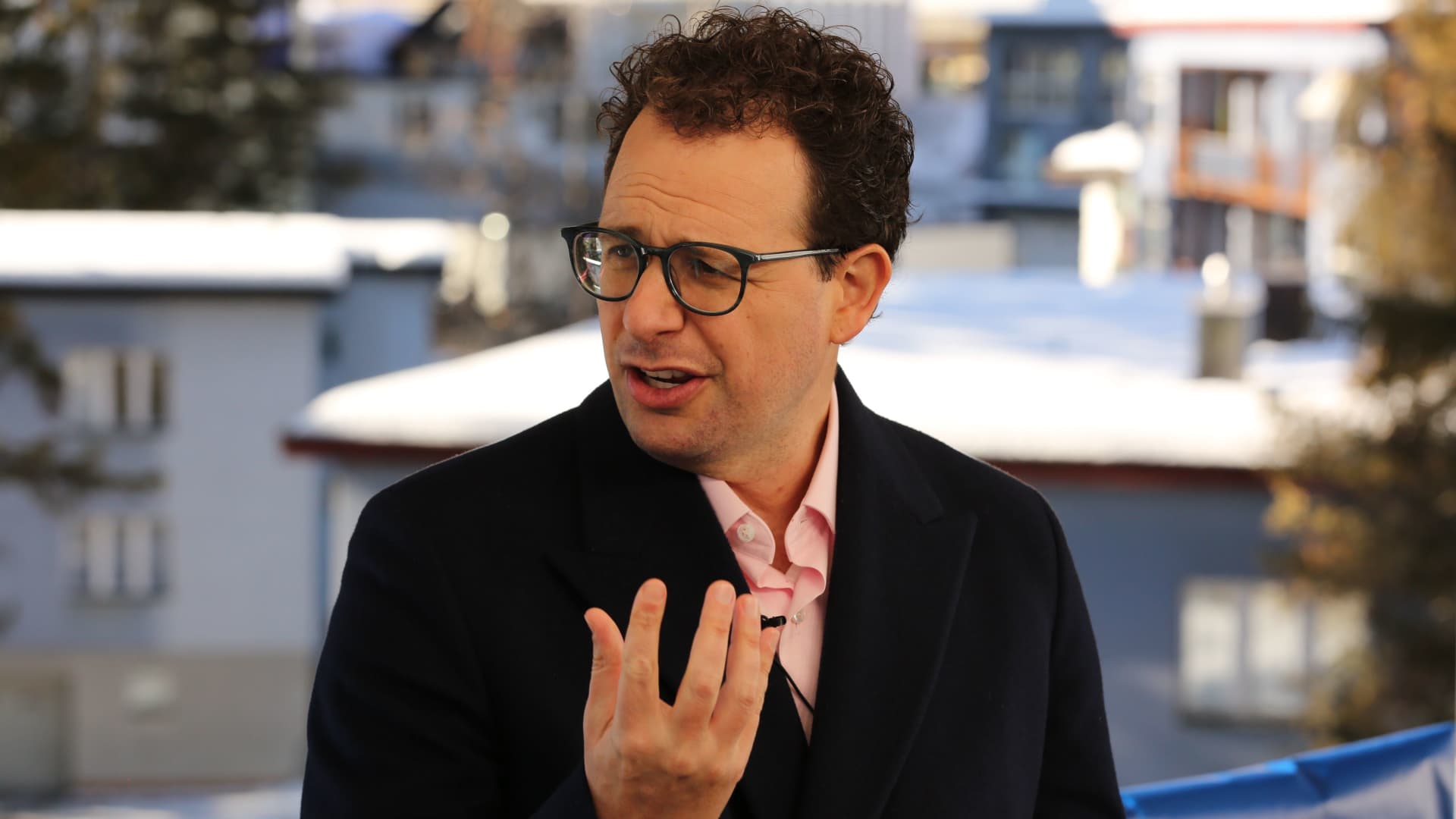Anthropic CEO Dario Amodei speaks on CNBC’s Squawk Box before the World Economic Forum in Davos, Switzerland, on January 21, 2025.
Gerry Miller | CNBC
Anthropic on Monday announced Claude for Life Sciences, a new offering for researchers to use the company’s artificial intelligence to advance scientific discoveries.
Claude for Life Sciences is based on Anthropic’s existing AI models, but also supports new connections with other scientific tools commonly used in laboratory research and development.
It will be able to support researchers at all stages of the discovery process, from conducting literature reviews to developing hypotheses, analyzing data, preparing regulatory submissions and more, Anthropic said.
The launch of Claude for Life Sciences marks Anthropic’s first official entry into the industry and comes just months after the company hired longtime industry executive Eric Kauderer-Abrams as head of biology and life sciences.
“Now is the pivotal moment for us where we decided this is a big area of investment,” Kauderer-Abrams said in an interview with CNBC. “We want a significant percentage of all life science work in the world to run on Claude, just as coding is done today.”
Anthropic, one of the companies at the center of the AI boom, is developing a family of large language models called Claude. It was founded in 2021 by a group of former OpenAI executives and researchers and its value has grown to $183 billion in just four years.
The company launched a new model, Claude Sonnet 4.5, late last month and said it was “significantly better” at life science tasks like understanding lab protocols.
Kauderer-Abrams said researchers have already engaged with Anthropic’s models to support parts of the scientific process. Therefore, the company decided to officially develop Claude for Life Sciences to support them from start to finish.
This meant that Anthropic had to build integrations with key players in the life sciences ecosystem, including Benchling, PubMed, 10x genomics and Synapse.org, among others. Anthropic has also worked with companies that can help life sciences organizations adopt AI, such as Caylent, KPMG, Deloitte and cloud providers AWS and Google Cloud, the company said.
“We are ready and excited about this task to make sure all the pieces fit together,” Kauderer-Abrams said.
In a pre-recorded demo, Anthropic showed how a scientist working on preclinical studies can use Claude for Life Sciences to compare two study designs that test different dosing strategies.
The scientist was able to query her lab’s data directly from Benchling, creating a summary and tables of key differences with links back to the original material. After reviewing the results, the scientist prepared a study report that could be included in an application for approval.
Anthropic said an analysis like this used to take “days” to validate and compile information, but now it can be done in minutes.
Kauderer-Abrams said the company believes AI can bring real efficiencies to the life sciences sector, but is also “under no illusions” that it will magically overcome the physical limitations of conducting scientific research. Clinical trials that take three years won’t suddenly take a month, he said.
Instead, Anthropic focuses on examining the time-consuming and expensive parts of the discovery process “piece by piece” to identify where AI might be most useful.
“We are here to ensure that this change happens and that it happens responsibly,” Kauderer-Abrams said.
REGARD: Anthropic launches Claude Sonnet 4.5, its latest AI model
